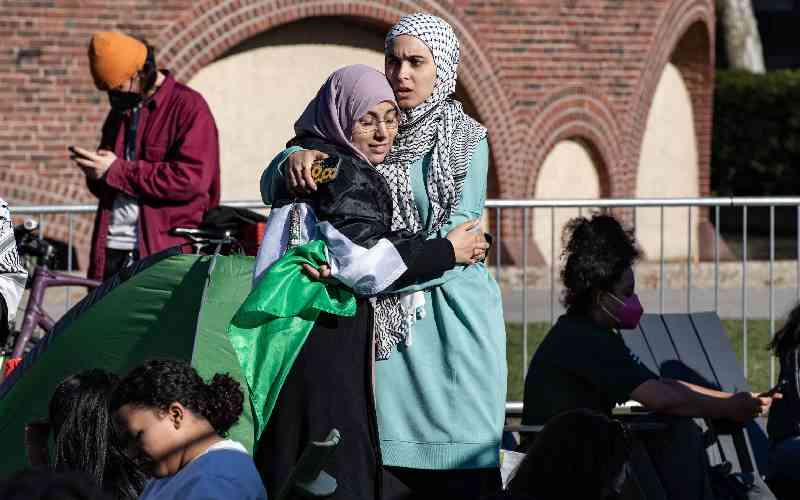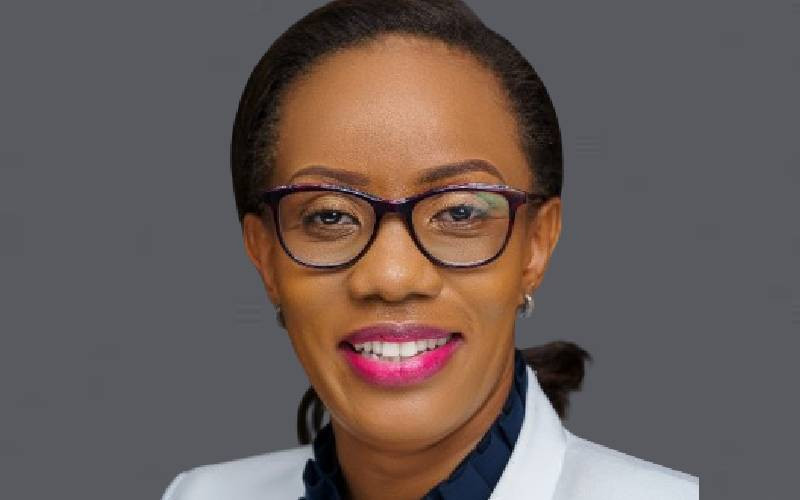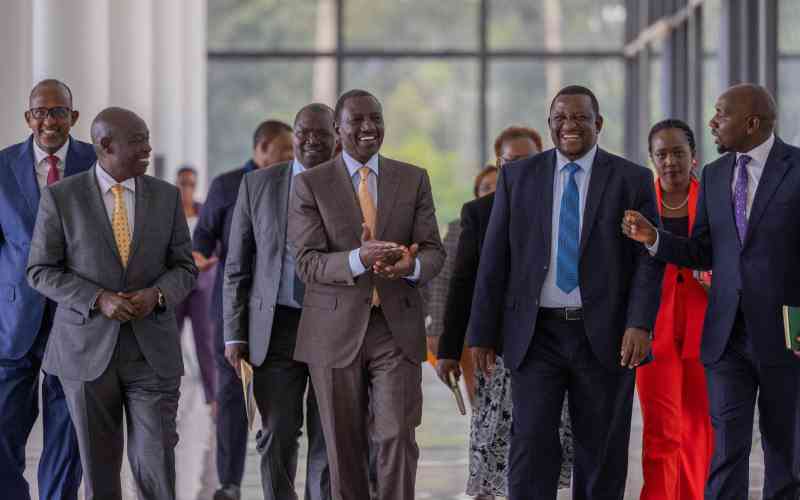By Anyang’ Nyong’o
Hospital administration is a science and not an art, although a good administrator needs to have a good appreciation of the arts and a touch of human psychology and inter-personal relations.
The science of hospital administration is not born with somebody; it is learnt in schools through courses on human resources management, supply chain economics, financial management, marketing, investment portfolio management, human well being, medical engineering, computer science, health insurance, good governance, conflict resolution and dispute settlements.
As such, hospital administration is not necessarily the preserve of physicians or surgeons; it is a profession acquired through training, learning and proper certification even by those already proficient in other fields of learning such as medicine, business administration, social sciences and even engineering.
Like all good professionals, a hospital administrator and manager will only do well in his or her job if he or she has a calling for it, and a commitment that takes pride in the service rendered and not the money made or the wealth accumulated. These, of course would be added advantages; but they should not be the motivation for an individual to climb to the top of such an institution like a hospital.
A hospital, like a church or a mosque, accepts those that come into it so that they can be healed; they can be made whole again, either physically or psychologically. That is why when one enters a hospital one is "admitted"; in other words consciously brought into the womb of the hospital for some care very akin to the care that a clergyman or a sheikh would give to the flock within the church or mosque.
The assumption that we have always had in Kenya that hospital administrators must of necessity be medical professionals, even when they have neither the calling nor the training for this job, needs to be revamped. In fact, we have unnecessarily overburdened good professionals with jobs they were not trained for, and with callings that cannot possibly be expected to develop overnight. In that regard, we have wasted their professional talents and taken them away from the good work that they could do in our hospitals if only they were left to examine, diagnose and heal our patients, while doing the research and spreading the knowledge they generate while doing their work.
We have over 285 sub-district and district hospitals and a dozen or so provincial and high volume district hospitals which will serve as well as regional referral facilities under devolved government. But we must begin now to see how this will be done under a referral system that is well managed and that will respond adequately and effectively to the growing needs of our people.
It is important to remember that the Constitution commits the Government to provide Kenyans with accessible and affordable healthcare; no time period is allowed for when this will be accomplished but the assumption is that the clock starts ticking once the relevant laws are put in place. But we have been committed to the UN Universal Declaration on Human Rights as early as 1948, and we have no excuse whatsoever as a member of the civilised community of nations not to honour our commitment to Kenyans today in line with the declaration and our Constitution.
What we lack, and what is obvious from a cursory look, is the ability and acumen to manage what we have effectively, efficiently and productively. Much has been said about corruption as a debilitating factor in our efforts to develop our society. But if we have proper laws and administrative mechanisms, with men and women well trained and committed to run the affairs of our nation, the sky is really the limit for Kenya,
We could begin with collaboration between the Ministry of Medical Services and the universities to mount graduate courses on hospital administration for graduates from diverse fields who are interested in branching into this field.
A well thought out national curriculum will need to be developed to be used in the universities, with some room allowed for innovation that is always characteristic of university learning. But we need to move with speed as the status of administration in our hospitals at the moment leaves a lot to be desired. Of course those charged with managing these hospitals are doing their best under the circumstances; but these circumstances need to be changed and the culture of administration re-engineered scientifically and not through political fiat.
It is only that we shall see the difference it makes when medical professionals begin to bridge the gaps among themselves in hospitals and create opportunities for discussions among themselves as they use the treatment venues for serious learning at all levels, and not simply in teaching hospitals.
The Kenya Medical Training College (KMTC) has programmes mainly for training undergraduate nurses and other medical personnel at that level. Plans to go further and offer university level education would make a useful contribution to this proposal. But we need to realise that all forms of learning need to be accompanied with research and the dissemination of knowledge. In the past this dissemination has come mainly through the written word. It is now coming more and more through the electronic media and asocial networks.
In medical sciences and medical practice, telemedicine is in the ascendance, and our hospital administrators will need to be on top of this science not only to facilitate their management but also to understand what doctors do when they use telemedicine to reduce cost, speed up care, share diagnosis and interact with patients without the hindrance of distance and personal contact.
Stay informed. Subscribe to our newsletter
We are obviously at the threshold of a brave new world, but we may be left dangling at the periphery if we don’t become daring enough to leap into this future as President Obama urged such a developed nation like the US to do.
We perhaps stand a better chance to do daring things because the payoffs will be much bigger and will make some awesome difference in our lives.
— The writer is Minister for Medical Services
 The Standard Group Plc is a
multi-media organization with investments in media platforms spanning newspaper
print operations, television, radio broadcasting, digital and online services. The
Standard Group is recognized as a leading multi-media house in Kenya with a key
influence in matters of national and international interest.
The Standard Group Plc is a
multi-media organization with investments in media platforms spanning newspaper
print operations, television, radio broadcasting, digital and online services. The
Standard Group is recognized as a leading multi-media house in Kenya with a key
influence in matters of national and international interest.
 The Standard Group Plc is a
multi-media organization with investments in media platforms spanning newspaper
print operations, television, radio broadcasting, digital and online services. The
Standard Group is recognized as a leading multi-media house in Kenya with a key
influence in matters of national and international interest.
The Standard Group Plc is a
multi-media organization with investments in media platforms spanning newspaper
print operations, television, radio broadcasting, digital and online services. The
Standard Group is recognized as a leading multi-media house in Kenya with a key
influence in matters of national and international interest.








